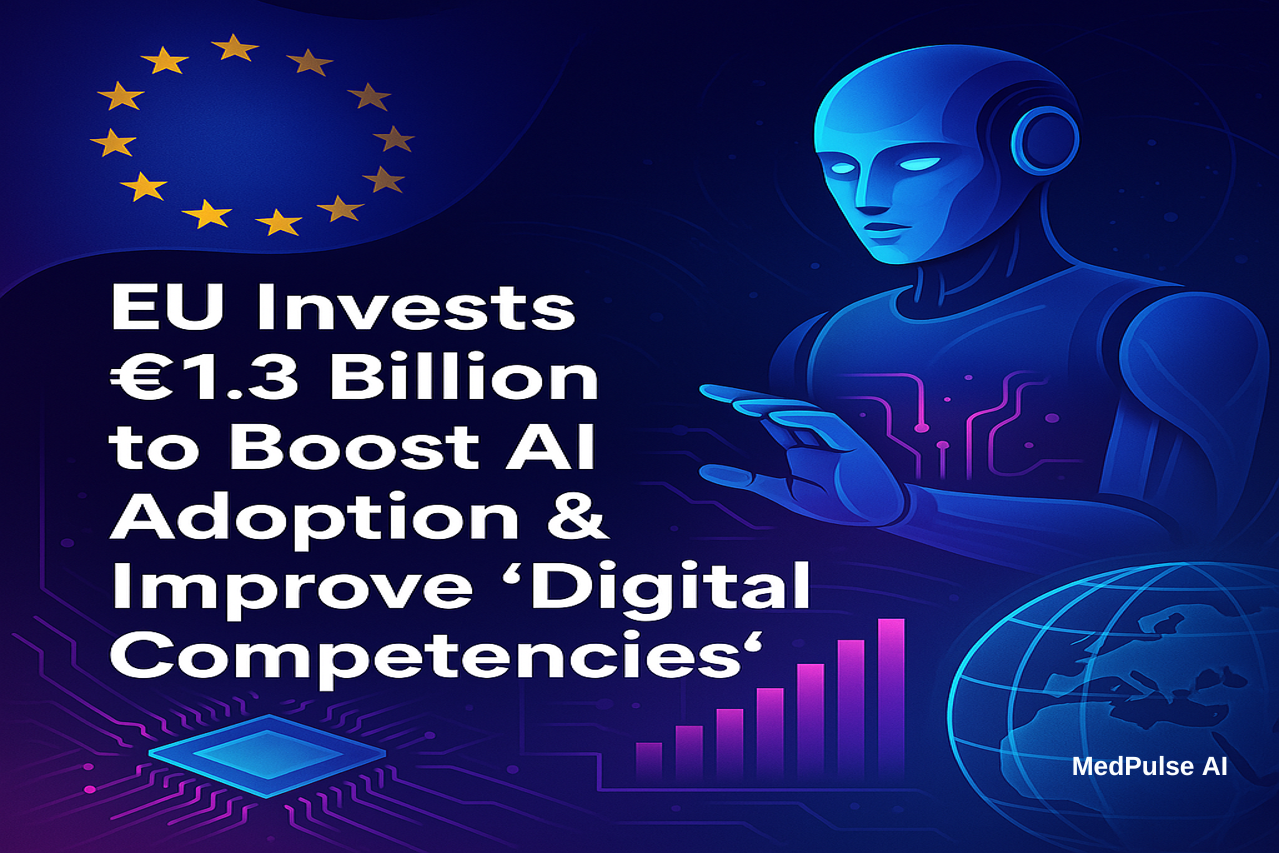As artificial intelligence reshapes everything from healthcare to education, governments are stepping up—not just to regulate but to empower. The European Commission has unveiled a €1.3 billion investment plan under the Digital Europe Programme (DIGITAL) for 2025 to 2027, aiming to enhance the continent’s technological sovereignty by advancing artificial intelligence (AI), cybersecurity, and—perhaps most importantly—equip people with the digital skills needed to thrive in the age of intelligent machines.
So, what does this mean for you—whether you’re a healthcare professional, tech-aware parent, or someone simply trying to stay informed about how AI is shaping the future?
Let’s break down the real-world value of this investment and why it matters beyond Europe’s borders.
Making AI Work With People, Not Just For Them
AI isn’t magic. Behind every algorithm lies data, training, ethics, and real-life users. That’s why a large slice of this funding is focused on making AI more usable, responsible, and accessible, especially in areas like healthcare and public services.
How?
- AI Factories: These will support the development of energy-efficient data spaces and generative AI models tailored for both business and government use.
- Virtual Worlds for Health: Think immersive training environments and simulation spaces that can support medical education, mental health therapy, and care delivery.
Why this matters: If you’re a clinician, caregiver, or patient advocate, better-trained AI equals better outcomes—and tools you can trust.
Building Digital Resilience—From Hospitals to Homes
Cyber threats don’t just target big tech companies anymore. Hospitals, public infrastructure, and personal data are increasingly under attack. The EU’s investment bolsters the digital walls around these systems:
- Cybersecurity Reserve: A European-wide safety net to respond quickly to large-scale cyber incidents, including those targeting health systems and cross-border digital networks.
Why this matters: In an AI-driven world, safety isn’t optional—it’s foundational. Knowing that your hospital’s data or your child’s school systems are protected increases digital trust.
From Digital Illiteracy to AI Fluency
Even the smartest tech is only as good as the people using it. That’s why the EU is putting significant funds toward developing the digital workforce of the future.
This includes:
- Training Programs in universities and vocational schools to prepare students for advanced digital roles.
- Upskilling Pathways for current workers in healthcare, education, and business who need to adapt to AI-powered tools.
Why this matters: Whether you’re mid-career or just curious, these efforts signal a global trend: digital upskilling is no longer optional—it’s part of economic survival.
Smarter Governments, Streamlined Services
Long waits, broken websites, and outdated systems in the public sector could soon be a thing of the past. This investment includes a push to create interoperable digital public services, meaning systems that talk to each other—and actually work.
And with the rollout of a European Digital Identity Wallet, citizens will be able to manage identification securely online, paving the way for faster, safer digital transactions.
Why this matters: Imagine seamless healthcare record sharing across borders or accessing services without mountains of paperwork. That’s what smarter digital infrastructure unlocks.
Why the Rest of the World Should Pay Attention
While this funding comes from the EU, the ripple effects go far beyond its borders. These investments set standards for how nations can balance innovation with inclusion, AI progress with data protection, and growth with equity.
Countries that want to compete—or collaborate—with Europe will need to step up similarly. That includes investing not just in AI models, but in the people who use, train, and trust them.
The EU’s investment isn’t just about tech—it’s about trust, talent, and transformation. As AI continues to touch nearly every profession and daily decision, initiatives like this one offer a template for preparing responsibly and inclusively.
And that’s something every nation, organization, and individual should take seriously.




